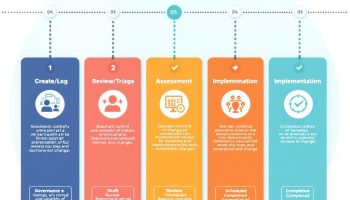
Management Project Certification: A Catalyst for Career Growth
Management project certification serves as a powerful catalyst for career growth, offering professionals a strategic pathway to enhanced earning potential and leadership opportunities. With over 1.58 million PMP-certified professionals across 211 countries, this credential has become the standard for project management expertise, providing a framework for skill validation and career advancement.
Key Takeaways:
- Management project certification can increase median salaries by 16-33% compared to non-certified professionals.
- Certification requires 24-60 months of project leadership experience, depending on educational background.
- PMP holders in the United States earn an average of $120,000 annually versus $90,000 for non-certified managers.
- Organizations with certified project managers achieve a 72% project success rate.
- Certification remains valid for three years and requires 60 professional development units for renewal.
The PMP certification acts as a career accelerator, opening doors to advanced positions and higher compensation. Project management certification validates your skills to potential employers, establishing your expertise in a competitive job market.
Your investment in certification pays dividends through tangible financial returns. Statistics consistently show certified professionals command higher salaries than their non-certified counterparts. This salary premium often covers the certification costs within the first year.
Beyond financial benefits, certification expands your professional network. You’ll connect with other certified professionals through preparation courses, study groups, and industry events. These connections often lead to mentorship opportunities, job referrals, and collaborative partnerships.
Certified project managers bring proven methodologies to organizations, resulting in improved project outcomes. Companies value this expertise because it directly impacts their bottom line through efficient resource utilization and successful project delivery.
The certification journey itself builds valuable skills. Preparing for certification exams requires mastering advanced project management techniques that you’ll apply throughout your career. The PMBOK Guide provides structured knowledge that transforms how you approach projects.
Your certification also demonstrates commitment to professional growth. Employers recognize the dedication required to earn and maintain certification, making you stand out during hiring and promotion decisions.
Global recognition represents another key advantage. Major corporations worldwide acknowledge management project certifications, making your credentials portable across industries and geographic boundaries. This portability proves particularly valuable in today’s mobile job market.
The renewal requirements ensure your knowledge stays current. By earning professional development units, you’ll continually refine your skills and stay updated on industry trends and best practices.
Starting Your Certification Journey
Starting your certification journey requires careful planning. First, determine which certification aligns with your career goals. PMP suits experienced professionals, while CAPM certification provides an entry point for those newer to project management.
Documentation of your experience forms a critical part of the application process. Track your project hours meticulously and secure recommendations from supervisors or clients who can verify your experience.
Your certification journey represents an investment in yourself that yields returns throughout your career. The combination of increased earnings, expanded opportunities, and enhanced skills makes project management certification a strategic choice for professionals seeking advancement in today’s competitive business environment.
“Management project certification is not just a credential; it’s a transformative force that can elevate your career, significantly boosting your earning potential while enhancing your leadership opportunities. As the gold standard in project management, it equips professionals with the skills to drive project success and solidify their place in a competitive global market.”
Global Landscape of Project Management Certification
Project management certification has become a powerful career accelerator with over 1.58 million PMP-certified professionals across 211 countries. The distribution shows China leading with 36.62% of certified professionals, followed by the United States (26.53%) and Canada (5.83%). PMP certification has established itself as the gold standard in management project certification credentials, covering comprehensive skills applicable across industries.
The financial benefits of obtaining management project certification are substantial. Certified professionals enjoy 16-33% higher median salaries compared to their non-certified peers. In the United States, PMP holders earn an average of $120,000 annually versus $90,000 for non-certified professionals. Similarly, in India, certified project managers earn median salaries of $26,620 compared to $22,627 for those without certification.
Certification Requirements and Eligibility
You can pursue certification through three distinct paths based on your education:
- High School/Associate Degree: Requires 60 months of project management experience
- Bachelor’s Degree: Requires 36 months of project leadership experience
- GAC-Accredited Program Graduate: Requires 24 months of project leadership experience
Each path requires completing 35 hours of project management education before applying. Your application will undergo PMI credential verification to ensure you meet all requirements. The project management software skills you develop during this process will prove invaluable throughout your career.
The exam fees are $425 for PMI members and $675 for non-members. Once achieved, your certification remains valid for three years, requiring 60 professional development units for renewal. The exam focuses on critical project management domains with an estimated pass rate below 70%.
Organizations benefit significantly from employing certified project managers. Companies report a 72% project success rate when certified professionals lead initiatives, with potential budget savings of 47%. There’s also a 40% reduction in project scope creep, creating a competitive advantage through enhanced project collaboration and skills.
Management project certification offers substantial strategic value for your career development. You’ll gain continuous learning opportunities through professional development units and access to the PMI professional community for networking. Proper preparation strategies, including studying the PMBOK Guide, will help you succeed. This certification represents a long-term career investment with measurable professional returns and potential for cross-industry mobility.
Certified project managers can drive a project success rate of 72%, significantly increasing the likelihood of achieving organizational goals.
forbes.com
Career Advancement and Financial Benefits
Earning management project certification can dramatically accelerate your career trajectory while substantially boosting your earning potential. The numbers speak for themselves – certified project managers earn between 16-33% higher median salaries than their non-certified counterparts. In the United States, professionals holding Project Management Professional (PMP) certification average $120,000 annually compared to just $90,000 for those without certification. Even in markets like India, the financial advantage is clear with PMP holders earning median salaries of $26,620 versus $22,627 for non-certified managers.
Beyond immediate financial rewards, management project certification opens doors to leadership positions that might otherwise remain closed. Your certification validates professional expertise to global employers, enhancing both job stability and marketability across industries. With over 1.58 million PMP-certified professionals spanning 211 countries, you’ll join an elite global network recognized for excellence in project leadership.
Organizational Impact of Certified Project Managers
Organizations with certified project management professionals experience measurable benefits that directly impact the bottom line. Consider these compelling statistics:
- 72% project success rate in organizations employing certified project managers
- 47% of project budgets potentially saved through proper management techniques
- 40% reduction in project scope creep when certified professionals lead initiatives
- Enhanced collaboration and specialized skills providing competitive marketplace advantage
These organizational benefits explain why companies increasingly prioritize project management certification in hiring decisions. Your certification demonstrates mastery of standardized methodologies and best practices that directly contribute to project success.
The path to certification requires dedication but yields tremendous returns. Depending on your education level, you’ll need between 24-60 months of project leadership experience plus 35 hours of formal project management education. The investment extends to exam fees ($425 for PMI members, $675 for non-members), but this cost pales compared to career-long salary advantages.
Once certified, you’ll maintain your credentials through ongoing professional development, accumulating 60 PDUs every three years. This continuous learning requirement ensures you stay current with evolving project management practices while developing professional goals that align with industry trends.
The strategic value of management project certification extends beyond individual career advancement to create organizational excellence. By mastering standardized approaches to planning, execution, and risk management, you’ll deliver more consistent project outcomes while avoiding costly mistakes and delays.
Project management certification can lead certified professionals to earn significantly more than their non-certified peers, with evidence showing a pay increase of 16-33%.
forbes.com
Certification Requirements and Eligibility Paths
Obtaining your management project certification requires meeting specific eligibility criteria that vary based on your educational background. The Project Management Professional (PMP) certification offers three distinct pathways tailored to different education levels and experience requirements.
With over 1.58 million PMP-certified professionals across 211 countries, this credential has become essential for career advancement in project management. When pursuing your certification, you’ll need to navigate these established requirements that maintain the credential’s prestigious standing.
For those with a high school diploma or associate’s degree (Path 1), you’ll need 60 months of project management experience. If you hold a bachelor’s degree (Path 2), the requirement drops to 36 months of project leadership experience. Graduates from GAC-accredited programs (Path 3) face the lowest threshold at 24 months of project leadership experience.
All candidates must complete 35 hours of formal project management education regardless of their chosen path. This requirement ensures you possess foundational knowledge before project management software certification testing. Your application will undergo PMI’s credential verification process to confirm your eligibility.
Financial Investment and Renewal Requirements
The financial aspect of management project certification involves both initial and ongoing costs. Exam fees stand at $425 for PMI members and $675 for non-members, making membership worthwhile for most candidates. Your certification remains valid for three years, after which you must demonstrate continued professional development.
The renewal process requires accumulating 60 Professional Development Units (PDUs) during the three-year certification cycle. These units demonstrate your commitment to continuous improvement and staying current with project management best practices. PDUs can be earned through various activities, including:
- Formal educational courses and workshops
- Self-directed learning activities
- Professional contributions like writing articles or presenting
- Working as a practitioner on projects
- Volunteer service to professional organizations
Organizations with certified project managers experience a 72% project success rate, compared to significantly lower rates in organizations lacking certified talent. This explains why employers increasingly value management project certification as an essential qualification for leadership positions.
The certification exam covers three critical project management domains: people, process, and business environment. With an estimated pass rate below 70%, thorough preparation is essential for success. Many candidates leverage study groups, practice exams, and project management mistakes to avoid resources to increase their chances of passing.
By investing in your management project certification, you’re positioning yourself for substantial salary increases ranging from 16-33% compared to non-certified peers. In the United States, PMP holders earn approximately $120,000 annually versus $90,000 for non-certified professionals—a compelling return on your certification investment.

Exam and Certification Details
Obtaining your management project certification requires understanding the specific exam structure and maintenance requirements. The Project Management Professional (PMP) certification exam costs $425 for PMI members and $675 for non-members, representing a significant investment in your professional future. This project management certification remains valid for three years after you pass the exam.
The PMP exam focuses on evaluating your knowledge across three critical project management domains: people, process, and business environment. You’ll need to demonstrate proficiency in leadership skills, technical project management methodologies, and strategic business alignment. The exam format includes 180 questions to be completed within 230 minutes, featuring a mix of multiple-choice, matching, fill-in-the-blank, and hotspot questions.
To maintain your certification, you must earn 60 Professional Development Units (PDUs) within each three-year cycle. These PDUs keep your management project certification current and ensure you stay updated with evolving industry practices. You can earn these units through various activities including:
- Formal education and training programs
- Self-directed learning and professional reading
- Creating project management content or presentations
- Volunteer service to professional organizations
- Working as a practitioner in relevant projects
The exam has an estimated pass rate below 70%, making thorough preparation essential. Most successful candidates dedicate 3-6 months of study time before attempting the exam. Using preparation resources like the PMBOK Guide, practice exams, and project portfolio management training courses significantly increases your chances of success.
Organizations recognize the value of management project certification, with studies showing that properly certified project managers achieve a 72% project success rate compared to non-certified counterparts. This certification demonstrates your commitment to professional excellence and provides a competitive edge in the job market.
Organizations with certified project managers experience a project success rate of 72%, significantly outperforming their non-certified peers.
forbes.com
Organizational Impact and Strategic Value
Organizations that invest in management project certification experience significant performance improvements. With a 72% project success rate in companies employing certified project managers, the strategic value becomes immediately apparent. Your organization can potentially save 47% of project budgets through proper management project certification implementation and reduce scope creep by 40%.
When you pursue management project certification, you’re not just advancing your career – you’re positioning yourself as a strategic asset to your organization. Companies recognize that certified professionals bring standardized methodologies and best practices that help avoid common project management mistakes and drive consistent results.
Tangible Benefits for Organizations
Certified project managers deliver measurable advantages that impact the bottom line:
- Improved resource utilization and allocation
- Enhanced risk management and mitigation capabilities
- Better stakeholder management and communication
- More accurate project estimation and planning
- Reduced waste and improved efficiency
- Standardized processes that scale across departments
The competitive advantage gained through certified professionals extends beyond individual projects. Your organization benefits from improved project collaboration and cross-functional teamwork. Management project certification equips you with frameworks for building stronger team dynamics and facilitating better communication across departments.
Many organizations now recognize management project certification as a prerequisite for leadership positions. This certification demonstrates your commitment to professional standards and continuous improvement. You’ll gain access to proven methodologies that help master strategic planning and execution, making you invaluable to employers focused on operational excellence.
The global recognition of management project certification also enables organizations to compete more effectively in international markets. Your certification validates that you understand global project management standards and can apply them consistently across diverse business environments. This standardization creates more predictable outcomes and helps establish credibility with international partners and clients.
Strategic Career Development and Next Steps
Obtaining a management project certification serves as a powerful career accelerator. With over 1.58 million PMP-certified professionals across 211 countries, this credential has established itself as the gold standard for project leadership. Your career trajectory can benefit substantially from this strategic investment in your professional development.
The financial benefits of management project certification are compelling. PMP holders earn 16-33% higher median salaries compared to non-certified professionals. In the U.S., the average salary jumps from $90,000 to $120,000 with certification. This salary premium reflects the enhanced value employers place on validated project management expertise.
Your project leadership capabilities become formally recognized when you earn certification. This recognition translates to increased opportunities for advancement and greater job stability, particularly valuable during economic uncertainty. The certification process itself follows distinct eligibility paths based on your education:
- High School/Associate Degree: Requires 60 months of project management experience
- Bachelor’s Degree: Requires 36 months of project leadership experience
- GAC-Accredited Program: Requires 24 months of project leadership experience
Beyond these requirements, you’ll need 35 hours of project management education and must pass an examination costing $425 for PMI members or $675 for non-members. The certification remains valid for three years, requiring 60 professional development units for renewal.
Organizational Impact
Organizations with certified project managers experience a 72% project success rate – a significant improvement over teams without certified leadership. Proper management project certification can help save up to 47% of project budgets and reduce scope creep by 40%. These metrics demonstrate why employers value certified professionals who can prevent scope creep and deliver consistent results.
Your continuous learning journey doesn’t end with certification. The professional community offers valuable networking opportunities with fellow certified professionals. Prepare strategically by studying the PMBOK Guide and leveraging online resources. The management project certification positions you for cross-industry mobility, making it a long-term investment with measurable professional returns.
As you develop your strategic planning approach, consider how certification aligns with your career goals. Many certified professionals report enhanced confidence in tackling complex projects and improved ability to secure stakeholder buy-in. The structured knowledge framework provided through certification helps you systematically address project challenges while speaking the universal language of professional project management.






